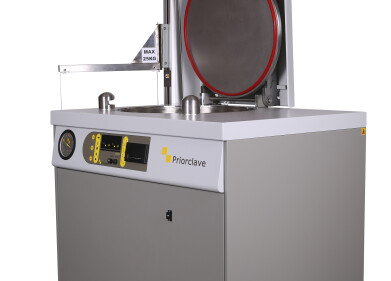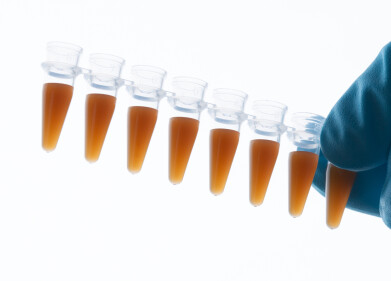Laboratory Products
Is It Possible to Stop Allergies?
Feb 12 2018
From itchy eyes to an incessantly runny nose, allergies can be debilitating. Now, researchers from Denmark's Aarhus University claim they've found a way to use antibodies as a preventative cure for common allergic reactions. With over 20% of the UK population affected by some form of allergy, the development could be life-changing for millions of Brits.
Introducing a competitor antibody
The research was published in Nature Communications and spotlights a human allergy antibody known as IgE. The team explored how it attaches itself to cells and its role in triggering the production of histamine, which is the root cause of most allergic reactions. After examining the biochemical mechanism that links IgE to effectors cells they found that a competitor antibody can be introduced to take its place and alleviate symptoms.
Removing the trigger
Using the blood of patients allergic to birch pollen and insect venom, the team triggered allergic reactions while simultaneously introducing the competitor antibody. After just 15 minutes the competitor antibody began to interrupt the interactions taking place between allergy molecules and immune cells. This essentially removed the trigger and prevented the allergic reaction from taking place.
Professor Edzard Spillner, senior author of the report explains, "Once the IgE on immune cells can be eliminated, it doesn’t matter that the body produces millions of allergen-specific IgE molecules. When we can remove the trigger, the allergic reaction and symptoms will not occur."
The team asserts that this approach to trigger management can be applied to other types of allergies, including nasal allergies and peanut allergies.
“We can now precisely map how the antibody prevents binding of IgE to its receptors. This allows us to envision completely new strategies for engineering medicine of the future," adds co-author Professor Nick Laursen.
A "single domain" weapon
Interestingly, the new competitor antibody is significantly smaller than the antibodies currently used in allergy medications. It's known as a "single domain" antibody and is extremely stable, which could help support new techniques for administering anti-allergy medications to patients. For example, instead of being injected they could be swallowed or inhaled.
With clinical trials on the horizon allergy sufferers across the globe could soon be armed with a powerful new form of medication.
Want to know more about how interaction observations are revolutionising modern medicine? Exploring cellular processes, 'Discovering Hidden Protein Interactions - Capturing Weak Protein-Protein Interactions with Exclusion-based Sample Preparation' introduces a new approach to affinity purification, which allows researchers to capture weak or transient protein-protein interactions for downstream analysis.
Digital Edition
International Labmate 49.6 - Sept 2024
September 2024
Chromatography Articles - HPLC gradient validation using non-invasive flowmeters Mass Spectrometry & Spectroscopy Articles - From R&D to QC, making NMR accessible for everyone: Putting NMR...
View all digital editions
Events
Oct 15 2024 Milan, Italy
Oct 17 2024 Dhaka, Bangladesh
Oct 20 2024 Fort Worth, TX, USA
Oct 21 2024 Dalian, China
Oct 30 2024 Birmingham, UK






.jpg)











